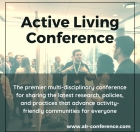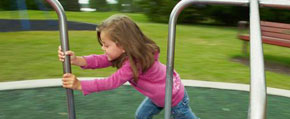We are pleased to announce an exciting new alliance between Active Living Research and GP RED to co-host and coordinate...
Physical and Social Contextual Influences on Children's Leisure-Time Physical Activity: An Ecological Momentary Assessment Study
Dunton, G.F., Liao, Y., Intille, S., Wolch, J., & Pentz, M. (2011). Physical and Social Contextual Influences on Children's Leisure-Time Physical Activity: An Ecological Momentary Assessment Study. Journal of Physical Activity and Health, 8(Suppl 1), S103-S108.
BACKGROUND: This study used real-time electronic surveys delivered through mobile phones, known as Ecological Momentary Assessment (EMA), to determine whether level and experience of leisure-time physical activity differ across children’s physical and social contexts. METHODS: Children (N = 121; ages 9 to 13 years; 52% male, 32% Hispanic/Latino) participated in 4 days (Fri.–Mon.) of EMA during nonschool time. Electronic surveys (20 total) assessed primary activity (eg, active play/sports/exercise), physical location (eg, home, outdoors), social context (eg, friends, alone), current mood (positive and negative affect), and enjoyment. Responses were time-matched to the number of steps and minutes of moderate-to-vigorous physical activity (MVPA; measured by accelerometer) in the 30 minutes before each survey. RESULTS: Mean steps and MVPA were greater outdoors than at home or at someone else’s house (all P < .05). Steps were greater with multiple categories of company (eg, friends and family together) than with family members only or alone (all P < .05). Enjoyment was greater outdoors than at home or someone else’s house (all P < .05). Negative affect was greater when alone and with family only than friends only (all P < .05). CONCLUSION: Results describing the value of outdoor and social settings could inform context-specific interventions in this age group.
Related Tools & Resources
STAY UP TO DATE
RECENTLY ADDED TOOLS & RESOURCES
MOVE! A BLOG ABOUT ACTIVE LIVING
The "Active Living Conference" aims to break down research and practice silos and...







